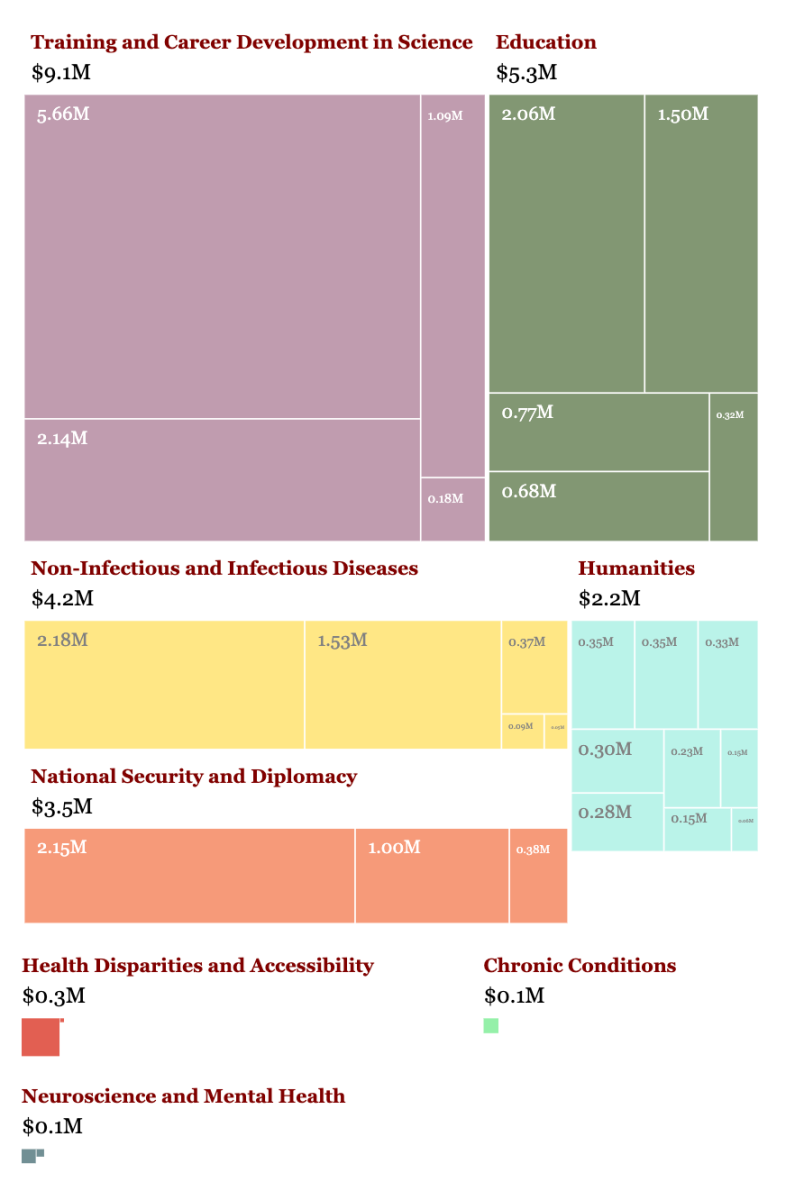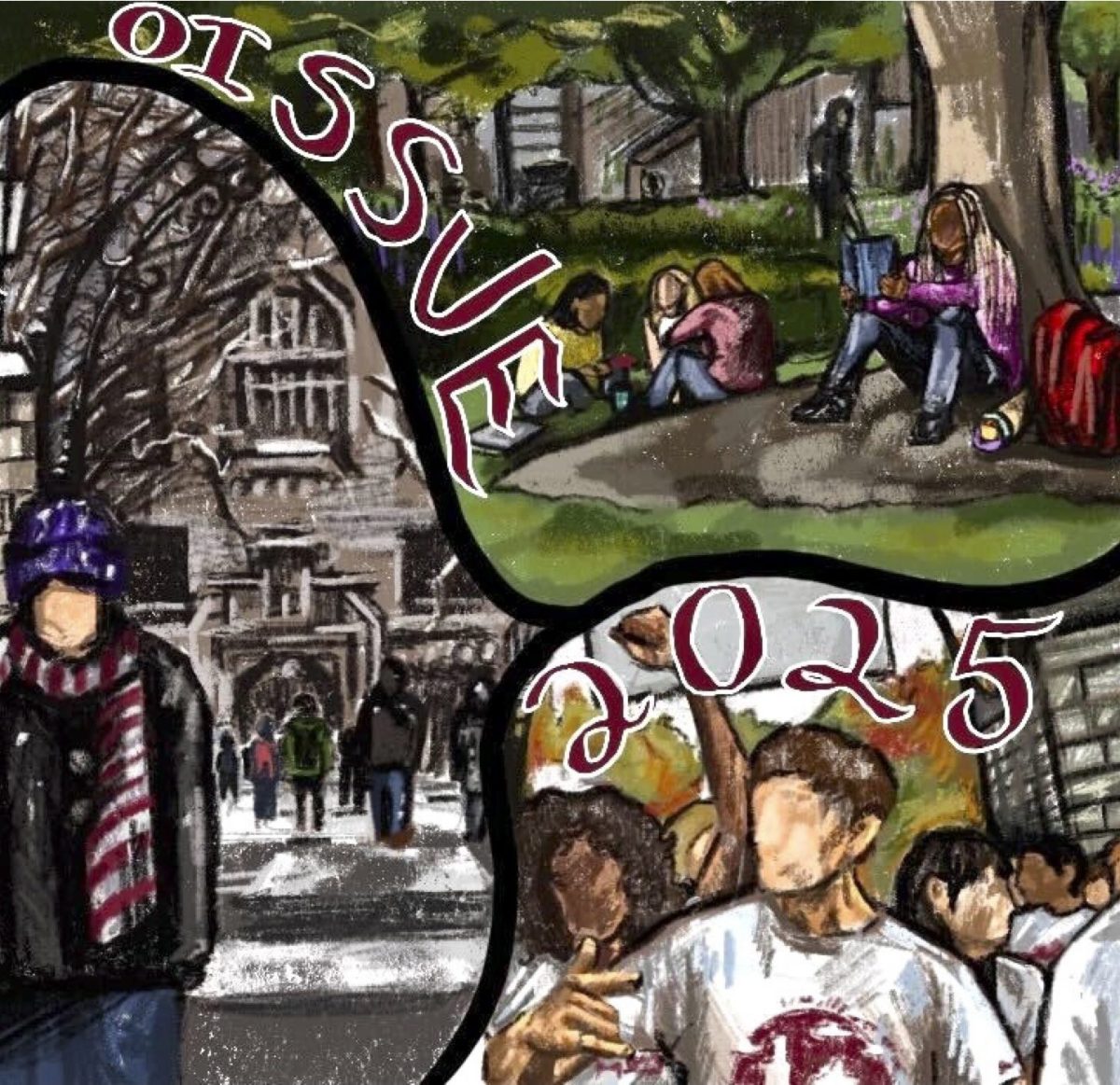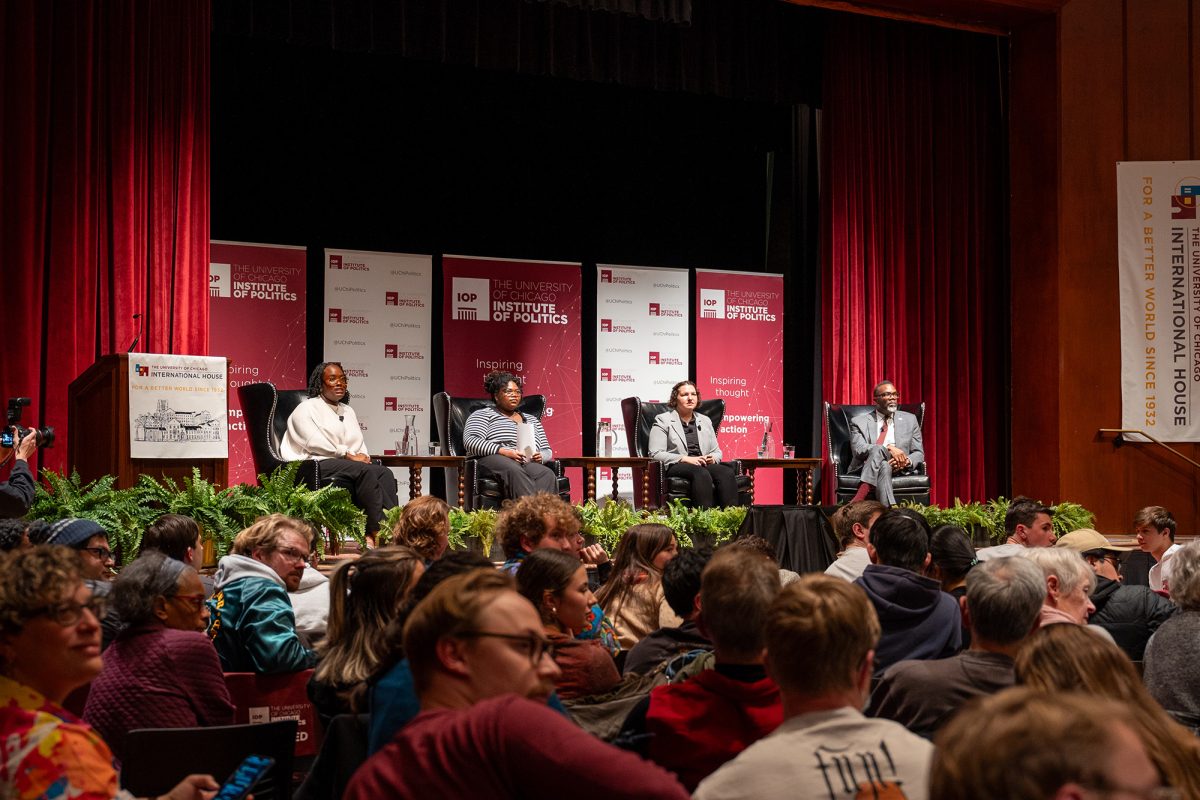On quiet nights in Regenstein Library, sidelong glances, rapidly shuffling cards, and the soft clinking of poker chips cut through the typical A-level chatter. Amid scattered collections of people calculating grades and grinding out homework, some UChicago students turn their intense focus elsewhere: poker.
For almost as long as this campus has existed, so too has its poker culture. In old Chicago Maroon articles dating back as far as 1926, students were voicing their interest in the game: “We don’t want to become educated next Friday.… We want to play a little poker.”
UChicago’s poker players persisted despite trouble from Ida Noyes: “[B]oys were caught playing for money and were sent little notices from the Dean’s Office,” a 1945 Maroon article documents.
On skiing trips in the 70s, students, or at least “the truly dedicated… came prepared with marijuana, poker chips, and even a stereo.”
Poker’s legacy at UChicago is a longstanding one.
Today, players of all skill levels gather for matches held in dorm lounges, apartments, and library spaces—anywhere with a table, really. For those unfamiliar, the scale and influence of these games go mostly unnoticed. But beneath the surface of everyday student life, the poker community is an intricate social scene. From high-stakes buy-ins and intense corporate finance recruiting to casual, late-night camaraderie, it’s competitive, and maybe even a little seedy.
Poker Strategy and Betting
One factor behind the game’s complexity is the significant range between players’ skill levels. For serious players, success takes much more than just luck.
“It’s mathematically possible to, not exactly calculate your winnings, but [calculate] enough that you are able to reasonably win depending on how good of a player you are,” said H. H., an anonymous student who frequently hosts poker games on campus.
Many advanced players utilize poker theory, which uses foundational concepts from probability and game theory to improve long-term winnings. Between estimating risk-reward ratios and calculating a hand’s odds of winning, the math behind a truly successful poker player can get surprisingly technical. Countless resources, from online poker forums and guides to physical books, exist for any novice willing to put in the time.
According to H. H., knowledge of poker theory is essential for anyone trying to become an advanced player. At first, H. H. said that he “neglected to study poker theory at all.”
But, when sitting around a table of seasoned experts, simply guessing or bluffing through rounds didn’t lead to success.
“When I moved up to much higher stakes, when people legitimately studied, I couldn’t beat the mathematics,” he said.
Both fourth-year Aditi Loya and second-year Daniel Ra, who view themselves as more casual players, echoed H. H.’s sentiment.
Loya described how the dynamics of poker at UChicago change when money is at stake: “I have seen people get stacked, and then their $1,000 becomes two and they double it,” Loya said. “They’re in a different place mentally [than casual players] when they make those calls. It’s a lot more rational—they know what they’re doing and why they’re doing it.”
For people aiming to become more serious players, H. H. finds that poker theory isn’t just an advantage, it’s a necessity.
“I think serious players are really playing for the money,” Ra explained. “They really want to make the most wins they can. They will also tend to play more aggressive buy-ins.” Though “aggressive[ness]” is in the eye of the beholder, H. H. noted that buy-ins can range from just five dollars to thousands; some of the highest-staked games that H. H. has hosted include buy-ins well over $2,000.
For students getting into poker, deciding how much money to risk can prove challenging. “If you’re buying in with $100, you have to feel comfortable knowing that you may never see these $100 again,” Loya said. “[You can’t go] in with the mindset of, ‘Oh, my $100 is going to become $1000’ because, frankly, that’s probably not going to happen.” The likelihood of drawing a good hand is low, with the odds of drawing the best hand, a royal flush, being only 0.000154 percent.
According to H. H., because of this inherent uncertainty, many more serious players enter a game with a “bankroll” in mind, or how much money out of a players’ bank account that they are willing to risk during a game. “Usually [it’s] around maybe 20 to 30 times the amount of a… buy-in.” As a competitive player, the most H. H. has ever won in one night is $4,900, an amount he’s reinvested back into his bankroll.
Unofficial Official Outlets
There are other, more structured ways that students can engage with poker at UChicago, too. Vincent Xu (A.B. ’25), who was president of the University of Chicago Undergraduate Poker Club, explained that his group provides members the opportunity to play in tournaments and attend seminars about poker strategy. Despite the group having an email list of around 80 students, it’s not officially recognized as an RSO. According to Xu, the University denied the club official status during the 2023–24 academic school year.
“I framed our poker club as an educational system, and I think that has been what it is,” Xu said. “But the school says it was too similar to quant[itative finance] recruiting.”
That comparison isn’t without merit: the logic and strategical methods behind poker are similar to those applied to quantitative finance, and students involved in one community are often drawn to the other. Many finance companies host tournaments of their own as a means of recruiting talent. Last April, for example, the Chicago Trading Company held its second annual poker tournament for UChicago students from programs including the Financial Math Program and the data science department. The poker club also often invites quantitative traders and other professionals to watch its tournaments.
“[We] have professional quant traders come in and talk about their experience and then chop it up with people at the table,” Xu said. “A lot of these guys are interested in poker.”
Lacking official RSO funding and status hasn’t stopped the club from operating. According to Xu, his poker club functions under Maroon Capital, UChicago’s leading quantitative finance RSO, which helps organize meetings and more formal tournaments.
“Tournaments have a more serious air but also have more sense of community to them [than cash games],” Xu said. “I think cash games are… for most people, a nice way to socialize and just talk about the game.”
Unlike casual games with loose rules for buying in and betting, poker tournaments follow an elimination format. Players start with a certain amount of chips, then lose or gain chips over time until only one winner remains. For club members, these tournaments provide a competitive way to engage with poker and win without a significant fear of losing money.
“I think a big tournament is somewhat more exciting, mainly because you can’t come back,” Xu said.
Behind the Velvet Curtain
Home games, tournaments, player dynamics, and theory are in the spotlight of poker at UChicago. If you look past the faces huddled together at those little tables in Regenstein, you might find that a lot more goes on behind the scenes.
Running a poker club involves a lot more than just sending out mailing lists, according to Xu. “Tournaments are very hard to run,” Xu said. “It sucks. I would end a day and just be exhausted.” Xu added that tournaments can last upwards of eight hours and require meticulous planning; securing funding, finding a suitable venue, reaching out to potential sponsors, and managing blinds or mandatory bets players must contribute before any cards are dealt are all part of Xu’s role as club president.
Even home games that involve money take a lot of work to organize. Students who choose to host home games among their peers need to keep track of, manage, and facilitate the transfer of earnings between players. “I’d say I manage $8,000 a night,” H. H said.
H. H. typically hosts two to three games a week, both in-person and online. He hosts mid- to high-stakes games starting at the $100 to $500 buy-in range for 25 to 40 players. However, moving those large sums of money so frequently has become difficult for him. “When it’s, say, [a] $200 minimum buy-in, it becomes a little dicey because the IRS starts questioning, ‘Why are you moving so much money?’ [and] ‘Why is it going in and out so much?’”
In Illinois, the legality of cash games falls under a gray area. According to the 2025 Gambling Laws and Regulations in Illinois, gambling is generally prohibited non-commercially. However, the law does not explicitly mention games held among friends. Though enforcement against matches that are not officially recognized typically only happens when organizers take rake—a fee taken from each participating player—high-stakes games can draw scrutiny.
Despite the challenges, H. H. continues to host games that last late into the night. For him, hosting acts as a social outlet and way to stay involved without always putting money at risk. “I like talking to people, people like talking to me,” he said. “It’s a win-win situation. They get to play, and I get to talk to people and watch.”
Poker at Low Stakes
In an intense environment like UChicago, where people spend hours studying poker theory and bet hundreds of dollars per game, risk can seem inescapable. According to Ra, however, not all players are in it for the money. Some see poker as a social activity at its core.
For Ra, the competition part of the game matters far less than the connections he has made through it. “I really play mostly as a social activity with the group of friends that I have,” he said. “I play with the same group of people. We are all casual players.”
Loya also enjoys the casual aspect of poker, adding that she has even made some friends through the game. She described her experience discovering her current poker group as very communal and welcoming. “I think [my] group kind of formed very organically, and then we were very committed to keeping it going as a social thing.”
However, Loya also cautioned new players to pay attention to the people they play with and the money they choose to put at risk. “[If you’re new,] don’t go into a new environment with a bunch of sharks. Go into a chill environment with your friends, where it’s 10 bucks and you learn something.”
Women at the Table
As diversified as the poker community is in skill level, the ratio of male to female players reflects a distinct gender gap. Many students agree that men make up the vast majority of poker players at UChicago, both in club tournaments and in informal home games.
For Loya, the background of many poker players at UChicago reflects a preexisting female underrepresentation. “I think it’s uneven because quant is mostly male dominated, and that’s how most of these guys got introduced to poker,” she said. Quantitative finance—and STEM related fields in general—typically reflect a female minority, with women making up just 26 percent of the US quantitative finance workforce.
Xu estimated that only around 10 percent of the participants in his tournaments were women.
“It’s just very hard for girls to be interested in an event where it’s mostly males,” Xu said. “Everyone sticks with communities that they’re similar to, and this one just happened to start out as male-dominated.”
But some players are trying to create a more inclusive community. Third-year Miranda Thomson, a former member of the UChicago Poker Club described her plans to start a women’s poker club next fall.
Thomson, who was the winner of one of the UChicago Poker Club tournaments, felt very aware of the tournament’s lack of gender diversity. “A lot of the time, it’s easy to stereotype a female at the poker table,” she said. “I tried to just take advantage of that and surprise people [by] being aggressive.”
When the club officially starts meeting this fall, Thomson plans to start beginner lessons on poker theory and strategies. She hopes that her club, as a female-exclusive space, will help women feel more confident in picking up and playing the game in the future.
Even in unofficial spaces, players are striving to introduce more women to poker. “I’ve been trying on my own to get a female poker group going, and I hope to have more games in the future,” Loya said. Currently, only two of the friends she plays poker with are women, though she hopes to build a larger group over time.
Poker at UChicago may still reflect a female minority, but many, like Loya and Thomson, are actively working to reshape the culture and lay the groundwork for a more inclusive future.
Conclusion
Prospective students touring the school might not hear about the many home games hosted in dorm lounges and apartments; students looking up official RSOs will not even find poker clubs on the list. But for those with a keen eye or a knack for lingering around Regenstein late into the night, it’s hard not to notice that soft clinking of chips. Turn your attention to the source of the noise, and you might even get to catch a glimpse of the faces behind the face cards.
Editor’s note, September 26 12:30 p.m.: Aditi Loya and Daniel Ra are fourth- and second-years respectively. The print version of this article incorrectly stated that Aditi Loya and Daniel Ra were third- and first-years respectively.















